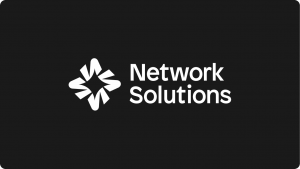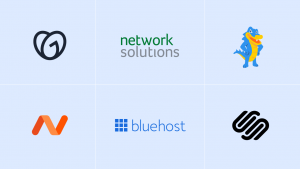Key takeaways:
- ICANN is a non-profit organization responsible for managing domain names, IP addresses, and the Domain Name System (DNS), ensuring a reliable internet experience.
- ICANN’s role extends to maintaining internet security and consistency by collaborating with global organizations and enforcing policies that protect users.
- ICANN makes decisions based on community feedback, ensures the stability of DNS, and has transitioned to global governance since its removal from U.S. oversight in 2016.
ICANN is a non-profit organization that helps the internet function smoothly. It manages domain names, IP addresses, and the Domain Name System (DNS), ensuring websites are accessible and secure for users around the world.
For anyone who runs a website, owns an online business, or even just browses the web, understanding ICANN is important. It plays a key role in the systems that keep the internet running efficiently.
In this article, we’ll walk through ICANN’s main responsibilities, why it matters to internet governance, and how it impacts your online activities.
What is ICANN?
The Internet Corporation for Assigned Names and Numbers (ICANN) is a non-profit organization that oversees the global management of domain names, IP addresses, and the Domain Name System (DNS).
ICANN’s purpose is to ensure the internet stays organized, accessible, and secure. By maintaining a structured system, ICANN allows users to easily find websites and services online.
Without ICANN, websites could overlap, making it impossible to find the right one.
ICANN’s background and organizational structure
ICANN was established in 1998, following a proposal by the National Telecommunications and Information Administration (NTIA) to improve the management of domain names and IP addresses. Since then, ICANN has become the key organization responsible for managing the Domain Name System (DNS).
Initially, ICANN operated under U.S. government oversight. However, over time, it transitioned to global governance, reflecting its expanded role in managing internet regulation and ensuring a neutral, international approach.
So, who is ICANN? Here are some key details about ICANN’s structure and responsibilities:
- ICANN board composition. The board is made up of 16 voting directors and 4 non-voting liaisons.
- Governance and decision-making. The board oversees the creation of policies and manages domain name disputes to maintain a stable and secure internet.
- Global collaboration. ICANN collaborates with the global internet community to make sure its decisions benefit all users and contribute to a secure and accessible internet.
Why is ICANN important?
ICANN is important because it maintains internet security, consistency, and governance. While it doesn’t regulate website content, ICANN’s policies and collaboration with global organizations help ensure a secure and smooth browsing experience for internet users.
Here are the key reasons why ICANN is important:
- Keeps the internet secure and organized
- Directs traffic to the right websites
- Makes internet access consistent for everyone
Let’s explore these points in more detail:
Keeps the internet secure and organized
ICANN helps set rules that keep the internet working safely and predictably. This reduces confusion and makes it easier for people and businesses to use the internet with confidence.
Directs traffic to the right websites
Every time you type a web address, ICANN’s systems help make sure you land on the site you meant to visit — not somewhere else. It manages domain names and IP addresses behind the scenes.
Makes internet access consistent for everyone
ICANN supports what’s called universal resolvability. This means that no matter where you are in the world, typing on a website will take you to the same version of that site; creating a more fair and reliable experience for users everywhere.
Now that we understand ICANN’s role in governance, let’s explore how it interacts with domain registrars to uphold these standards.
ICANN and a domain registrar’s relationship
ICANN works closely with domain registrars to enforce policies that help maintain the integrity of the DNS. These policies ensure domain names are unique, protect user data, and support the overall security of the internet.
ICANN operates an accreditation system for domain registrars, which guarantees a stable and reliable environment for domain names. This accreditation ensures that registrars, including Network Solutions, meet strict criteria to be trusted with domain registration services.
Together, ICANN and domain registrars ensure that domain registration services are transparent, secure, and trustworthy for users worldwide.
How ICANN manages domain names and TLDs
ICANN oversees both top-level domains (TLDs) and second-level domains (SLDs) within the DNS. It works alongside the Generic Names Supporting Organization (GNSO) and the Country Code Names Supporting Organization (CCNSO) to maintain the security and stability of the DNS.
To implement its policies, ICANN accredits domain registrars such as Network Solutions. These registrars are responsible for selling domain names to users while following ICANN’s guidelines, ensuring that every domain name is unique and properly registered.
ICANN’s role in IP address management
ICANN doesn’t directly manage IP addresses. Instead, it oversees the Internet Assigned Numbers Authority (IANA), an organization under its management that handles the technical side of IP address distribution.
Here’s a breakdown of responsibilities:
- ICANN’s role. While ICANN doesn’t directly manage IP addresses, it ensures that IANA carries out these responsibilities and remains organized.
- IANA’s role. IANA is in charge of managing and allocating IP addresses worldwide. It tracks, allocates, and distributes IP addresses to five Regional Internet Registries (RIRs).
- RIRs’ role. The five RIRs distribute IP addresses to Internet Service Providers (ISPs), who then assign them to individual users.
Although ICANN isn’t directly responsible for distributing IP addresses, it plays a key role in managing the central IP address repository.
What does ICANN have to do with root servers?
Root servers are at the top of the DNS hierarchy and are essential for translating domain names into IP addresses. When a user enters a domain in their browser, root servers direct the query to the correct website, ensuring a smooth online experience.
Here’s a breakdown of ICANN’s role with root servers:
- Root servers sit at the top of the DNS
- Root servers translate domain names into IP addresses
- ICANN manages one of the 13 global root servers (IMRS)
- IANA handles updates and IP address distribution from the root zone
- ICANN collaborates with root server operators (RSOs)
- ICANN ensures RSOs adhere to best practices for security and performance
Let’s explore how ICANN manages root servers and supports the smooth operation of the DNS.
Root servers sit at the top of the DNS
These servers are the first point in the system that translates domain names into IP addresses, directing users to the correct websites.
Root servers translate domain names into IP addresses
They help guide DNS queries by matching domain names with their corresponding IP addresses. This process ensures users reach the right site when typing a domain name into their browser.
ICANN manages one of the 13 global root servers (IMRS)
ICANN operates ICANN Managed Root Server (IMRS), one of the 13 root servers worldwide that manage DNS requests.
IANA handles updates and IP address distribution from the root zone
The Internet Assigned Numbers Authority (IANA) is responsible for managing and updating IP address information from the root zone to keep the system running smoothly.
ICANN collaborates with root server operators (RSOs)
ICANN works closely with other root server operators to ensure all servers follow best practices for the DNS infrastructure.
ICANN ensures RSOs adhere to best practices for security and performance
To maintain the integrity and stability of the DNS system, ICANN makes sure that root server operators follow strict security protocols and performance standards.
ICANN’s decision-making process and accountability
ICANN makes decisions by gathering feedback from its community. This guarantees that many different voices are heard before final decisions are made.
Since moving away from U.S. government oversight in 2016, ICANN operates more independently. It focuses on staying neutral and serving the global internet community.
When ICANN needs to make a change, here’s how the process works:
- Gathering feedback. ICANN invites input from various groups within the internet community to make sure all views are considered.
- Public review. If an organization has concerns or suggests changes, ICANN opens up a public review where everyone can provide feedback.
- Revisions and further feedback. Once feedback is collected, ICANN revises its proposals and opens them up for another round of public review.
- Board review. Once all feedback is considered, the ICANN Board makes the final decision, either approving or rejecting the proposed changes.
ICANN also maintains accountability through a transparent internal system, which ensures the organization serves the public interest. ICANN must comply with California law as it’s incorporated in the state. Moreover, it operates under a set of bylaws, which guide how it functions and makes decisions.
Criticisms of ICANN
Like many organizations, ICANN has faced its share of criticism, especially early on. One of the main concerns was its connection to the U.S. government. Critics argued that a global, neutral body should manage the internet, rather than one with ties to a single government.
ICANN was originally contracted by the U.S. Department of Commerce in 2000 to take over the management of IANA. At the time, the U.S. government also funded ICANN’s operations.
However, over time, ICANN has worked to increase its global neutrality. After transitioning away from U.S. government control, ICANN has made strides toward becoming a more inclusive and transparent organization. This shift has been a key step in fostering greater international collaboration and ensuring the fairness of its decision-making processes.
How ICANN makes money
As a non-profit, ICANN generates its revenue through a variety of fees. These fees primarily come from domain registrars when they handle domain transactions, ensuring that the DNS continues to function smoothly.
Here’s a breakdown of how ICANN makes money:
- Transaction-based fees. ICANN collects a fee from domain registrars every time a domain is registered, transferred, or renewed.
- Annual accreditation fees. ICANN charges $4,000 per year to accredited domain registrars to maintain their certification.
- Variable fees. Each quarter, ICANN collects fees from registrars based on the volume of domains they sell.
Start strong with a trusted domain registrar
Now that you understand how ICANN ensures the internet runs smoothly, it’s time to take charge of your online presence. If you’re starting a new venture, building your brand, or securing your digital assets, registering your domain with a trusted, accredited registrar like Network Solutions is an essential next step.
With Domain Privacy + Protection and Domain Expiration Protection, you’ll shield your personal information from prying eyes and protect your domain from potential hijacking.
Don’t wait— set yourself up for long-term success. If you need assistance, our help center is here to guide you through every step.
Frequently asked questions
ICANN, or the Internet Corporation for Assigned Names and Numbers, was formed to maintain a secure, stable, and consistent internet. It achieves this through policies and procedures that govern domain names and IP addresses.
No, ICANN is not a government entity. It is a non-profit organization that oversees the Domain Name System (DNS) and manages the assignment of IP addresses. Although independent, ICANN operates within the framework of California state law.
ICANN’s revenue primarily comes from fees charged to domain registrars and the registration of domain names. These fees help sustain ICANN’s operations and ensure the smooth functioning of the internet’s core infrastructure.
ICANN holds significant influence over the management of internet resources, including domain names and IP addresses. Its policies and decisions play a key role in ensuring the stability, security, and coordination of the internet infrastructure.
No, ICANN does not regulate website content or access to the internet. It focuses on coordinating the technical aspects of the internet to ensure its stability and security.




